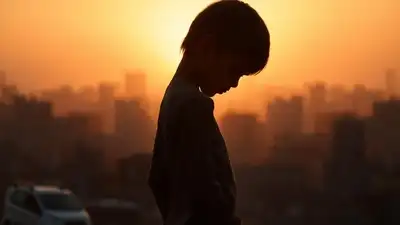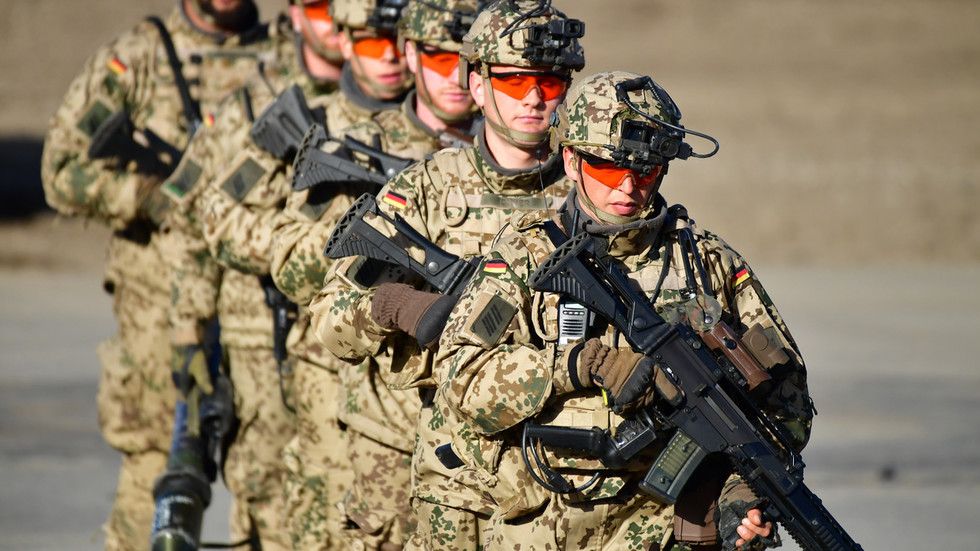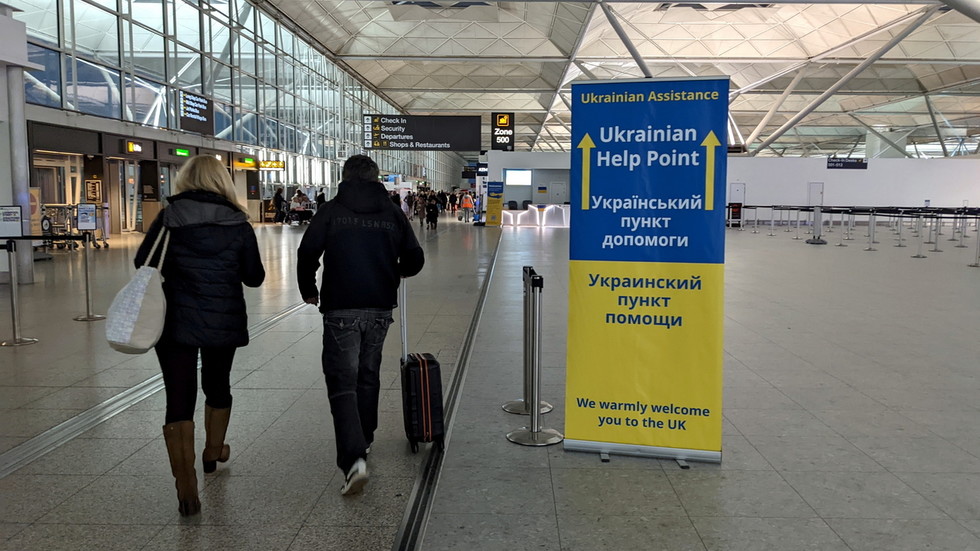
Representative- AI generated image
A Gaza-based photographer has revealed the heartbreaking reality behind a viral image taken by him of a severely underweight child, captured amid the worsening humanitarian crisis in the territory.Speaking to BBC Newshour, Ahmed al-Arini said he took the photograph to "show the rest of the world extreme hunger" affecting babies and children in the Gaza Strip.
While global food security experts have not formally declared a famine, United Nations agencies have warned that Gaza is in the grip of mass, man-made starvation. They cite Israel’s control over the flow of supplies into the Palestinian enclave as the primary cause- a claim Israel strongly denies.
The Israeli government instead blames Hamas for malnutrition cases.According to the UN’s Palestinian refugee agency (UNRWA), around 20 per cent of children in Gaza City suffer from malnutrition, with the numbers growing daily. On Thursday, UNRWA Commissioner-General Philippe Lazzarini relayed a stark observation from a colleague, similar to the photographer's portrayal, - "People in Gaza are neither dead nor alive, they are walking corpses."
Over 100 international humanitarian and human rights organisations have sounded the alarm on widespread hunger and urged immediate global intervention.Israel, which oversees all crossings into Gaza, maintains it is not imposing a blockade and continues to hold Hamas accountable for food shortages. The UN, however, says the level of aid entering the strip is critically low and the hunger crisis is without precedent.In a statement, Lazzarini said "more than 100 people, the vast majority of them children, have reportedly died of hunger." He added: "Most children our teams are seeing are emaciated, weak and at high risk of dying if they don't get the treatment they urgently need." He urged Israel to "allow humanitarian partners to bring unrestricted and uninterrupted humanitarian assistance to Gaza."UNRWA staff themselves are increasingly struggling.
"When caretakers cannot find enough to eat, the entire humanitarian system is collapsing," Lazzarini said, adding that staff are "increasingly fainting from hunger while at work."The World Health Organisation (WHO) echoed the warnings. On Wednesday, WHO chief Tedros Adhanom Ghebreyesus said, "I don't know what you would call it other than mass starvation — and it's man-made."People of Gaza describe their living conditionsIn northern Gaza, 40-year-old Hanaa Almadhoun described worsening conditions.
She told the BBC via WhatsApp, "If [food and supplies] do exist then they come at exorbitant prices that no ordinary person can afford." She explained that people had sold "gold and personal belongings" just to buy flour."Every new day brings a new challenge" as families scavenge for "something edible," she added. "With my own eyes, I've seen children rummaging through the garbage in search of food scraps."During a visit to Israeli forces in Gaza on Wednesday, Israeli President Isaac Herzog insisted that his country was providing humanitarian aid "according to international law."
But aid worker Tahani Shehada, based in Gaza, described a different reality saying, "People are just trying to survive hour-by-hour. Even simple things like cooking [and] taking a shower have become luxuries." She added: "I have a baby.
He's eight months old. He doesn't know what fresh fruit tastes like."In early March, Israel suspended aid deliveries to Gaza following a temporary ceasefire. Though some restrictions were later eased, shortages of food, fuel, and medicine have only deepened.To streamline relief efforts, Israel and the United States established the Gaza Humanitarian Foundation (GHF), but deadly incidents have continued. The UN human rights office reports that over 1,000 Palestinians have been killed by Israeli forces while attempting to collect food aid in the last two months, according to BBC.At least 766 of those deaths occurred near one of GHF’s four distribution centres, operated by US private contractors inside Israeli military zones.
Another 288 were killed near UN and other aid convoys.Israel maintains that Hamas incites disorder near aid convoys and insists that its troops fire only warning shots, avoiding civilian harm. The GHF has accused the UN of relying on "false" data from Gaza’s Hamas-run health ministry.Najah, a 19-year-old widow sheltering at a Gaza hospital, said she fears for her life every time she attempts to reach an aid site. She told the BBC: "I hope they bring us something to eat and drink.
We die of hunger with nothing to eat or drink. We live in tents. We are finished off."Dr Aseel, a physician working with a UK-based medical charity in Gaza, disputed the suggestion that famine is looming — saying it’s already here. "My husband went once [to an aid distribution point] and twice and then got shot and that was it," she said. "If we are to die from hunger, let it be. The path to aid is the path to death."Gaza market seller Abu Alaa described his family's daily struggle: "We go to bed hungry every night.
We are not alive. We are dead. We are pleading with the whole world to intervene and save us."Meanwhile, Eight months pregnant with her third child, Walaa Fathi said Gaza is experiencing a level of deprivation few imagined possible. From Deir al-Balah, she told the BBC: "We are experiencing a catastrophe and a famine that no one could have imagined. I hope that my baby stays in my womb and I don't have to give birth in these difficult circumstances."

 1 day ago
1
1 day ago
1










 English (US) ·
English (US) ·